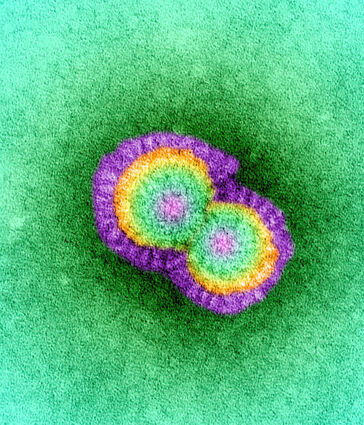Suspected Avian Influenza outbreak
February 2, 2023
WALLA WALLA–Washington Department of Fish and Wildlife (WDFW) biologists recently responded to reports of sick or dead waterfowl in our region. Samples are being sent to the National Veterinary Services Laboratories (NVSL) for confirmation, with H5N1 strain Highly Pathogenic Avian Influenzas (HPAI) suspected.
HPAI is a highly contagious infection caused by a type of Influenza A virus and is often fatal to birds and poultry. While HPAI is very contagious among birds, the risk to people is low. Though this current strain of Bird Flu does not appear to easily infect humans, WDFW and the Walla Walla County Department of Community Health (WWCDCH) urge the public to take appropriate safety precautions to limit possible exposure to suspected positive birds.
WDFW and WWCDCH continue to ask members of the public who find sick or dead birds to report them immediately using their online form and do not touch them. Do not attempt to move sick birds to a veterinarian or rehabilitation center, or to your home, as this can spread disease. If a dead bird must be moved, it is best to wear disposable gloves while handling it and to double bag and dispose of the carcass where pets and scavengers cannot reach it. As resources are available, biologists may respond to remove bird carcasses and, if in an area or species where Avian Influenza has not been confirmed, test for the virus. Due to the magnitude of this outbreak, WDFW staff will not be able to respond to all reported cases.
Infected birds may appear lethargic, unable to fly, and exhibit wheezing, vomiting, or have diarrhea or secretions from their mouth or nostrils. More detailed information about Avian Influenza is available here.
Sick or dead birds in domestic flocks should be reported to the Washington State Department of Agriculture. Call 1-800-606-3056 or visit their webpage for more information about how to protect poultry and other domestic birds. Report sick/dead wild birds suspected of Avian Influenza to Washington State
Department of Fish & Wildlife.
For hunters, waterfowl and other birds that appear healthy or are actively flying likely present minimal risk but should be cooked thoroughly before consumption. Dead geese and ducks found in Walla Walla County and neighboring counties are likely a result of Avian Influenza.
Dogs and other animals can become sick with Avian Influenza, and proper precautionary measures should be taken to avoid contact between pets and either sick birds or carcasses of diseased birds. Wherever possible, maintain control of and discourage your dog from touching birds that were not shot immediately prior. To reduce the risk of disease transmission, hunters are asked to not clean and dispose of bird carcasses in the field, but to do so at home and to double bag and dispose of bird carcasses in the garbage.
As a reminder, poultry, eggs, and other poultry products are safe to eat when handled properly and cooked. Be sure to follow these steps for safer food:
- Wash hands and clean and sanitize work surfaces and equipment before and after contact with raw
poultry.
- Don't wash meat or eggs. Washing raw meat or eggs can spread germs to your sink, countertops, and
other surfaces in your kitchen. Cooking poultry thoroughly will kill harmful germs.
- Separate raw and cooked meat to avoid cross-contamination.
- Cook poultry thoroughly to an internal temperature of 165 degrees Fahrenheit.
- Keep poultry stored at 40 degrees Fahrenheit or below or, in the freezer at 0 degrees Fahrenheit or
below.


